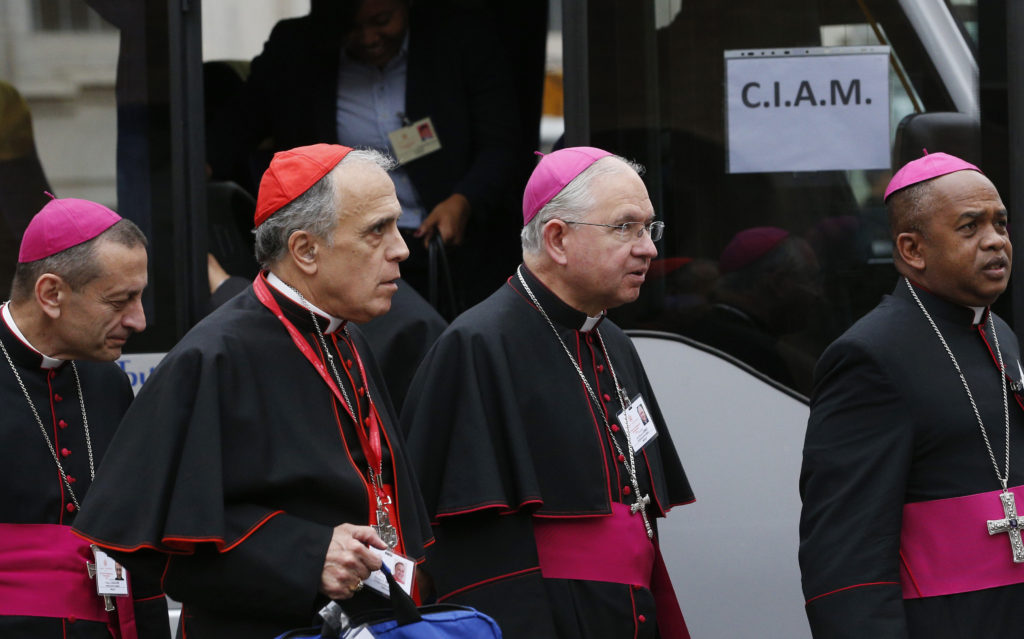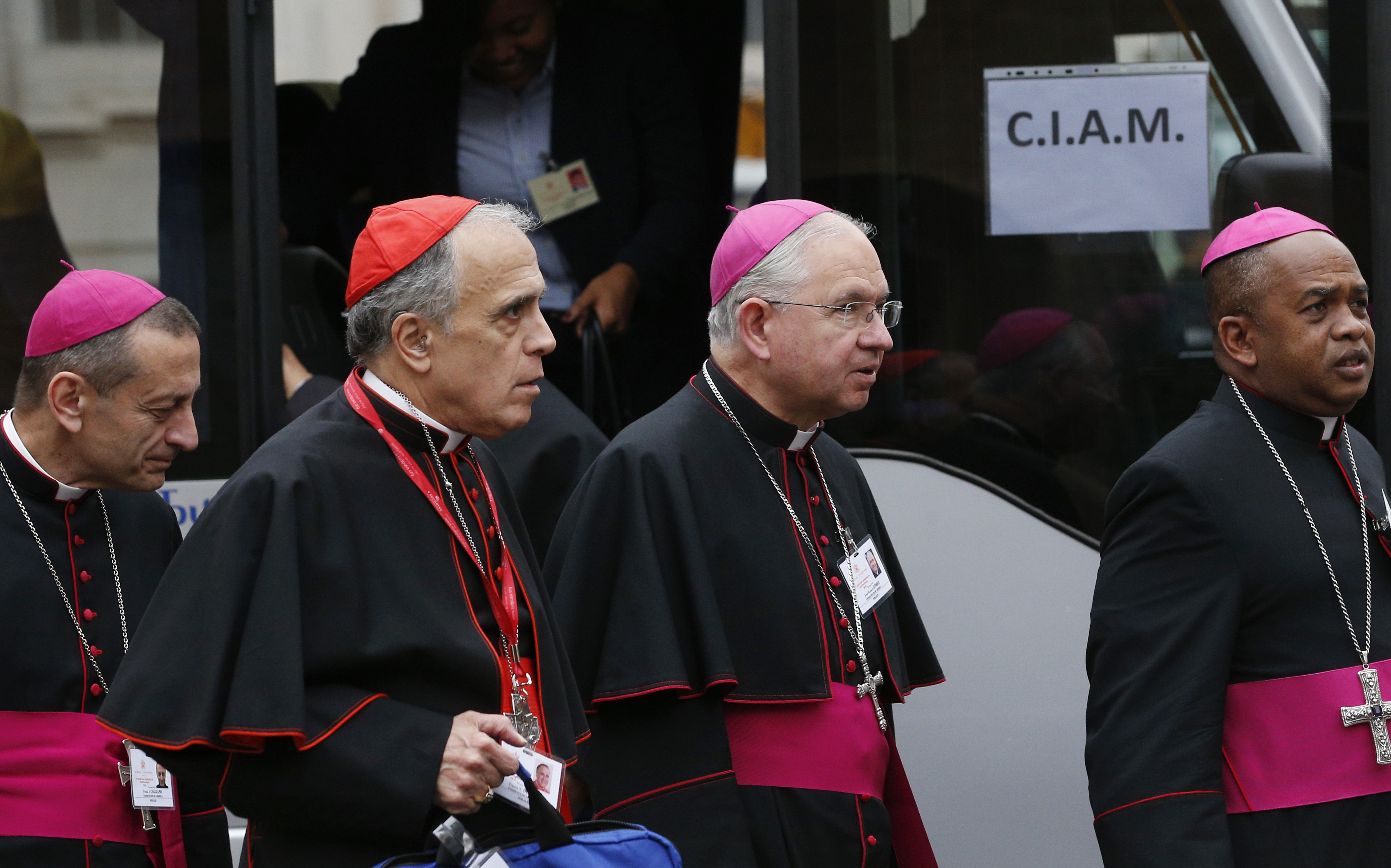
By Cindy Wooden and Anne Condodina
Catholic News Service
VATICAN CITY (CNS) — Cardinal Daniel N. DiNardo of Galveston-Houston, president of the U.S. Conference of Catholic Bishops, used his episcopal motto — “Hail O cross, our only hope” — as the title of his speech to the Synod of Bishops on young people, the faith and vocational discernment.
“The central event for our faith and life is recognizing, interpreting and choosing the invitation to embrace the cross,” he told his fellow bishops Oct. 16.
As the Catholic Church and its members strengthen their commitment to reaching out to young people, helping them “by dialogue to discern their way in the world and the Church for a deeper, more human life,” they cannot ignore the cross, the cardinal said.
“Jesus asks everyone He meets to ‘Follow me,’” he said. “His invitation is strong, not weak; decisive, not anemic.”
As members of the synod discussed the assembly’s working document, making suggestions for how sections should be amended or altered for the gathering’s final document, Cardinal DiNardo said the cross and the meaning of Christ crucified were the key missing pieces.
Promoting youth ministry focused on encouraging a “growth process, a gradual maturing in faith,” has advantages, he said, but it can lead to a situation where “major spiritual themes might be diminished.”
Cardinal DiNardo noted how throughout the Gospels Jesus gradually reveals Himself “as He beckons the Twelve, the crowds and us to the cross, to a crucified Messiah.”
“Jesus evangelizes through His identity as the crucified Lord,” the cardinal said. “It is impossible not to see this throughout the Gospels.”
Cardinal DiNardo told synod members they should not hesitate to present the truth of faith to young people because they “are not fearful. They are willing for a sustained challenge to claim their identity.”
A “vague” call will not attract anyone, the cardinal said. The synod’s final document must “issue a call like Jesus’ call. It must witness to the cross.”
To “capture the imagination” of young people and inspire them, Church leaders should offer them the example of modern saints and call young people to be “everyday saints, each in his or her own way,” said Archbishop José H. Gómez of Los Angeles, USCCB vice president, in his speech to the Synod of Bishops earlier in the day.
“We need to show young people what holiness looks like by living the Gospel we preach, proclaiming Jesus Christ by the way we live. We need to call young people to be saints — and we need to be saints ourselves,” Archbishop Gómez said.
The “urgent priority of all our resolutions from this synod,” he said, should be to proclaim Jesus Christ and to call young people to conversion and new life in Christ.
Western societies, Archbishop Gómez said, offer young people “alternatives for self-creation rooted in the restless consumption of material comforts” instead of calling them “to goodness or beauty or truth.”
“Young people today do not know how to live authentic human lives because the adults of our secular society have not shown them the way,” he said.
However, he said he is confident the Church holds the answer that young people are looking for.
Reach out to the young people and “proclaim the Gospel as God’s beautiful plan of love for our lives,” he urged his brother bishops. By doing this, the dignity and destiny of the human person is revealed.
“God is calling young people to live their lives as a mission, following in the footsteps of Jesus Christ and walking in the company of others who have met Him and made Him the ‘way’ for their lives,” Archbishop Gómez said.
Church leaders, he said, have a mission, which “requires that we model for young people how to pray as a conversation with God and how to contemplate the face of Christ in the pages of the Gospel.”
It also requires “boldly proclaiming and confidently living” the teachings of Christ and helping young people perform the works of mercy, engaging in service to the poor.
“Young people today demand and deserve what every human heart is longing for — the encounter with Jesus Christ,” the archbishop said.







